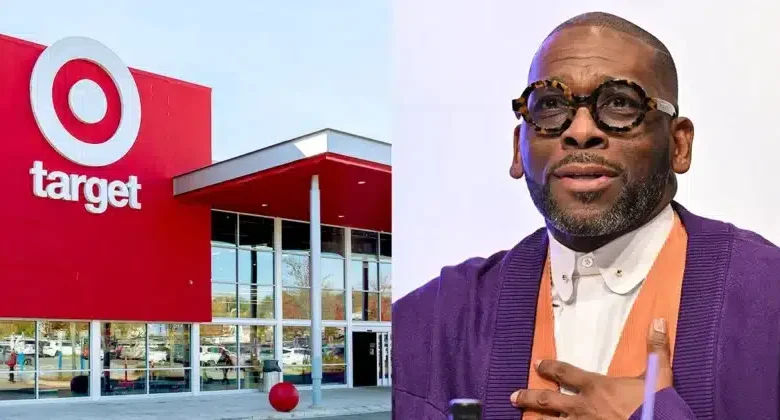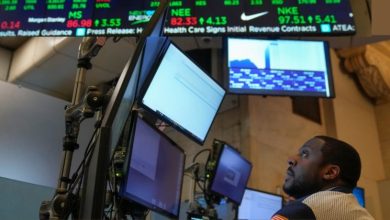Did Boycott From Black American Pastors Send Target Corporation (NYSE:TGT) to Its Knees? CEO Suddenly Steps Down, Investors Lose $12 Billion in Stock Collapse

Pastor Jamal Bryant’s 40-day “TargetFast” campaign triggers massive consumer backlash after retailer abandons DEI commitments
Target CEO Brian Cornell announced his resignation this week following a sustained boycott campaign led by Black pastors and civil rights leaders that has cost the company over $12 billion in market value since the retailer abandoned its diversity, equity and inclusion programs in January.
The DEI Reversal That Started It All
Cornell’s downfall began when Target announced on January 24 that it would eliminate its DEI initiatives, just three days after President Trump’s executive order targeting such programs. The Minneapolis-based retailer rolled back its Racial Equity Action and Change (REACH) program, which had committed $2 billion to Black-owned businesses by 2025 following George Floyd’s murder.
The reversal represented a dramatic about-face for Cornell, who had championed diversity efforts in 2020, stating: “As CEOs, we have to be the company’s head of diversity and inclusion.” Under his leadership, Target had pledged to increase Black employee representation by 20% and featured over 50 Black-owned brands in stores.
The strategy had proven highly successful financially. In 2021, comparable sales grew 12.7% and Target’s market value soared to $129 billion, suggesting that DEI initiatives were driving significant business growth rather than hampering it.
Pastor Bryant’s Strategic Campaign
Pastor Jamal Bryant of New Birth Missionary Baptist Church in Georgia launched one of the most visible challenges to Target’s policy reversal. In February, Bryant announced a 40-day “TargetFast” during Lent, calling on “100,000 conscientious citizens” to avoid spending at Target from March 5 through April 20.
The campaign exceeded expectations, attracting over 200,000 participants and triggering copycat efforts like LatinoFreeze.com. According to Placer.ai data, foot traffic at Target stores fell 6.8% year-over-year during the boycott period, though the company was already facing broader retail headwinds.
Bryant claims the boycott played a significant role in Target’s struggles: “The CEOs salary was cut by 42%. Foot traffic was down by 7.9%,” he told CNN. “This was the most significant boycott of Black people since the Montgomery bus boycott 70 years ago.”
Financial Struggles Coincide with Boycott
Target’s financial difficulties have coincided with the boycott campaign, though the company faces multiple headwinds. The stock price fell from $137.40 on January 24 to current levels around $96, representing a 65% decline from its 2021 peak of $129 billion. The company now holds a market value of approximately $45 billion.
Recent quarterly results showed comparable sales falling 1.9% with net income dropping 21%. The company has reported flat or declining comparable sales in nine of the past 11 quarters, reflecting broader retail challenges including changing consumer habits, inflation pressures, and increased competition.
While boycott organizers claim their campaign significantly impacted these results, Target has not specifically attributed its financial struggles to the boycott. The company faces multiple challenges including shifts in consumer spending patterns and competitive pressures from other retailers.
The Riviera Beach Police Pension Fund filed a class-action lawsuit against Target, Cornell, and board members, alleging they misled investors about the financial risks of abandoning DEI initiatives and downplayed potential consumer backlash.
Corporate Response and Leadership Change
Cornell’s resignation comes as Target scrambles to address the crisis. Chief Operating Officer Michael Fiddelke will assume the CEO role on February 1, though civil rights leaders remain skeptical about meaningful change.
“Moving the COO to the CEO is really stylish, but it has no substance,” Bryant said. “It’s really nothing different about the ideology or their stance on DEI.”
Other activists echoed these concerns. “Incoming Target CEO Michael Fiddelke has an important choice,” said CAIR-Minnesota executive director Jaylani Hussein. “He can restore public trust by reversing these harmful DEI rollbacks or continue down the failed path of Brian Cornell.”
Broader Implications
The Target boycott represents a significant test case for corporate America’s response to political pressure on DEI programs. While companies like Walmart, Amazon, and Meta have also scaled back diversity initiatives, few have faced such sustained and organized consumer backlash.
Bryant has already announced his next target: Dollar General, citing the chain’s prevalence in underserved communities and lack of minority executive leadership. He’s also encouraging support for the Smithsonian’s National Museum of African American History and Culture as Trump administration policies threaten cultural institutions.
The Target situation demonstrates that abandoning diversity commitments can carry substantial financial risks, particularly for retailers dependent on diverse consumer bases. Whether other companies will reconsider their DEI rollbacks remains to be seen, but Cornell’s resignation sends a clear message about the potential consequences of underestimating organized consumer power.
The campaign’s success has energized Black consumer activism, with Bryant declaring: “They don’t know that they’ve awakened a sleeping giant. Black people are now alert, mobilized and conscientious about what’s taking place.”



